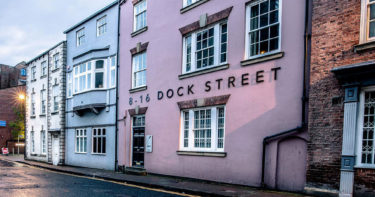
11
Dec 2017
Last Orders, Landlord? The Legalities of Premises Licensing
In an age of ‘pop up’ bars and restaurants, it often becomes difficult to define when licensing rules apply. What do we need? When do the rules apply? What type of application is required? These are just some of the questions clients, corporate or otherwise, need to know the answers to.
Similarly, when a business buys or sells a premise to which licensing rules apply, it often becomes difficult to ascertain how a license should be transferred.
At Chadwick Lawrence, we recognize that time diverted from the business to ascertain answers to questions like these can impact on an organization’s performance. The Commercial Property team deals expertly with a vast range of acquisitions on behalf of clients to which licensing laws often apply.
The Designated Premises Supervisor (DBS)
- When purchasing a business that sells or distributes alcohol a designated premises supervisor (DPS) must be registered in order to authorize the sale and supply.
- On a purchase of a property or business, you must apply to vary the DPS if the person previously registered will not remain on the premises.
- A formal application must be sent to the police and the former license holder as well as the local council to which the premise is situated.
- A DBS check is often required to prove the person is of good character and will not diminish the reputation of the establishment – an important point to remember when purchasing.
- It is possible for community, church and village halls to apply under section 25A(6) of the Licensing Act 2003 to remove the mandatory conditions in section 19(2) and (3) of the act (the requirement for a DPS) and replace them with an alternative license condition in under which a management committee is responsible for the supply of alcohol.
When should you apply?
- If purchasing a business this should be prepared at the outset on a ‘Prem 1’ application.
- Details of the property must be attached, including a plan of the property, and who the proposed DPS is must be entered on the application.
- The application can take up to 6-8 weeks.
- An application also has to be advertised in an appropriate local paper and 28 days for any objection must be given.
- Appropriate signage must be placed around the premises and contact details must be given if anyone wishes to object.
- Conditions from the local council and emergency forces might also be imposed including a requirement for CCTV at the premises, confirmation for appropriate methods to ascertain the age of customers and fire evacuation procedures. Time must be taken to ensure these are implemented.
Temporary Licensing
- A temporary license is often preferred if it is not the intention to permanently supply alcohol.
- A ‘Prem 10’ application can be made to the local Council and the police force.
- A minimum 7 days notice needs to be given in order for the council to approve. However, it is still at their discretion.
- The maximum amount of temporary licenses that may be granted will change depending on the council. This will usually range from 5- 10 per calendar year.
- The notices cannot be running concurrently and at least one day has to be given either side of the agreed period.
- At the council’s discretion, it is possible for a part of the premises to be closed and another part open in order to keep premises operating on preferred days.
- Temporary licensing may also be used as a ‘stop-gap‘ whilst a permanent license is ascertained.
- The supply of alcohol may not automatically be permitted on a temporary license especially if the premise has not sold alcohol previously.
The Consequences of Non-Compliance
- The Council has the ability to shut down the business at any given time. This includes during the operating hours when the business is open.
- The Council can also recommend premises remains shut due to non-compliance or a breach of the requirements.
- A DPS that has acted inappropriately may be banned from this role in the future.
- Operating hours can also be restricted at the council’s discretion and on an objection upheld by a member of the public.
- Fines can be imposed for repeated breaches of conditions and may even result in criminal prosecution.
Death of a DPS
- The death of a DPS can also lead to worrying times for all those involved particularly when the business is being sold as part of the deceased’s estate or otherwise.
- The council will require a member of the business, usually working at the property, to take on this role as soon as possible.
- On the sale of the business, the seller should give the buyer the death certificate in order for the authorities to permit a new DPS on the premise.
What next?
This article provides an overview of the law in this particular area. If you or your business is looking to purchase or sell a property with issues surrounding licensing requirements, our Commercial Property team at Chadwick Lawrence would be delighted to hear from you with a view to discussing how they could assist you further.
If you would like further information please do not hesitate to contact Jonathan Exall on jonathanexall@chadlaw.co.uk
- Like this ? Share with friends




